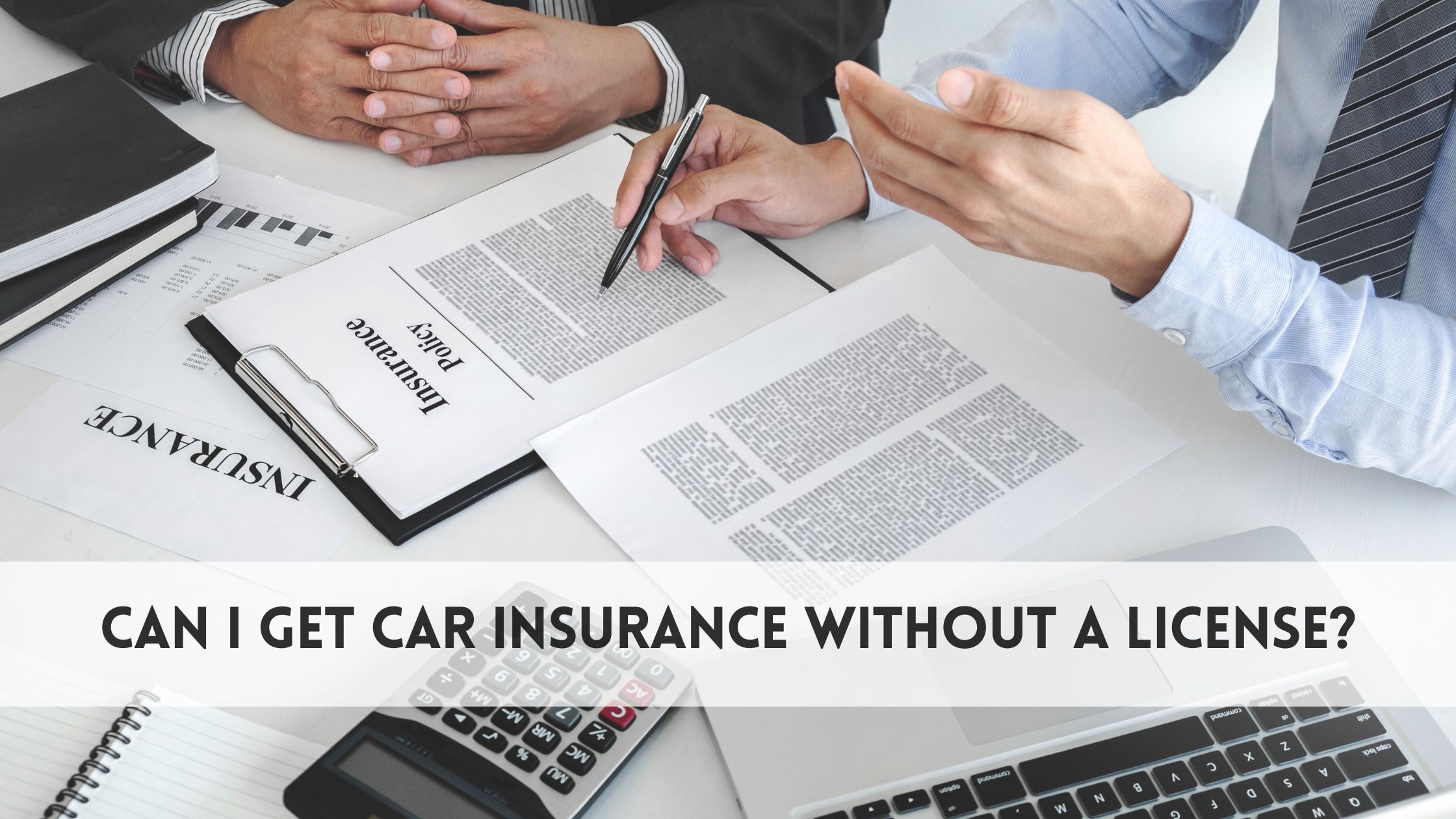When Can You Claim Car Insurance?

Table of Contents
Car insurance is a vital safeguard for drivers, offering financial protection in the event of accidents, theft, or damage. However, understanding, when can you claim car insurance? Is essential to ensure that you are using your coverage effectively and within the policy’s guidelines.
In Rutland, VT, specific scenarios such as accidents, weather-related damages, or vandalism often warrant filing a claim. Yet, knowing the circumstances under which you should claim and the process to follow can save you time and money. Whether you are dealing with a minor fender bender or significant vehicle damage, understanding your car insurance policy will help you navigate these situations with confidence.

Introduction: What is a Car Insurance Claim?
A car insurance claim is a formal request to your insurance provider for financial assistance to cover damage, theft, or other losses specified in your policy. Claims can help offset repair costs and medical bills or even compensate for stolen vehicles. However, filing a claim isn’t always the best choice, as it may affect your premiums.
Types of Car Insurance Claims
| Type of Claim | Description |
|---|---|
| Collision Damage | Covers damage to your car caused by a collision with another vehicle or object. |
| Comprehensive Damage | Covers non-collision incidents like theft, vandalism, or natural disasters. |
| Bodily Injury Liability | Covers medical expenses or legal fees if you’re responsible for injuries in an accident. |
| Property Damage Liability | Pays for damage you cause to someone else’s property in an accident. |
| Uninsured/Underinsured Motorist | Protects you if you’re involved in an accident with someone who has no insurance or insufficient coverage. |
When can you claim car insurance?
Filing the answer to “When Can You Claim Car Insurance” can be a significant decision, especially when it impacts your premiums or future coverage. Below are detailed situations where filing a claim is recommended, ensuring you’re financially protected and legally compliant.
Major Accidents with Extensive Damage
When you’re involved in a car accident, you can file a claim for damages to your vehicle, property, or injuries, depending on the type of coverage you have, such as collision insurance or liability coverage.
- When to File:
File a claim if:- The damage exceeds your deductible.
- You are not at fault, and the other party’s insurance is unresponsive.
- Injuries are involved.
- Coverage Details:
- Collision Coverage: Pays for damage to your car, regardless of fault.
- Liability Coverage: This covers damage or injuries caused to others if you’re at fault.
Example: You’re involved in a collision at a busy Rutland intersection. Your car requires repairs costing $5,000, and your deductible is $1,000. Filing a claim ensures your insurer covers $4,000 of the repair costs.
- Steps to Take:
- Call the police and file a report (mandatory for accidents with significant damage or injuries).
- Document the scene with photos and notes.
- Exchange contact and insurance details with the other driver.
- Notify your insurance provider promptly and provide all documentation.
Theft or Vandalism
If your vehicle is stolen or damaged intentionally by acts of vandalism, you can file a claim under comprehensive insurance. Filing a police report is a critical first step.
- When to File: File a claim if:
- Your vehicle is stolen.
- You suffer significant damage from vandalism (e.g., broken windows, keyed surfaces, graffiti).
Example: Your car is parked overnight in a public lot, and in the morning, you find the windows smashed and tyres slashed. Comprehensive insurance covers repair costs or reimburses you if the car is irreparable.
- Steps to Take:
- File a police report and obtain a copy.
- Take photos of the damage and document the incident.
- Submit the police report and evidence to your insurer.
Damage from Natural Disasters or Weather Events
Weather in Vermont can be unpredictable, and natural events like hailstorms, snowstorms, or falling tree branches can damage vehicles. Comprehensive insurance covers such damage, providing financial relief.
- When to File: File a claim if:
- Hailstones cause extensive dents on your car.
- Snow or ice causes a tree branch to fall on your car, damaging the roof or windshield.
Example: During a Rutland winter storm, heavy ice buildup causes a branch to collapse onto your car. Repair costs amount to $3,000. Filing a claim under your comprehensive coverage ensures you’re not paying out-of-pocket.
- Steps to Take:
- Document the damage with photos or videos.
- Provide weather-related evidence, such as news reports or photos of the storm’s aftermath.
- Notify your insurer and submit the evidence for claim processing.
When Someone Else Is at Fault
If another driver is responsible for an accident, you can file a claim with their insurance provider under their liability coverage. This ensures that the at-fault party covers the damages.
- When to File: File a claim with their insurance if:
- You suffer vehicle damage or injuries due to their negligence.
- Their liability insurance covers the type of damage incurred.
Example: You’re stopped at a red light, and another driver rear-ends your vehicle. Filing a claim with their insurance ensures they cover the costs of repairs and any medical bills for injuries.
- Steps to Take:
- Exchange insurance information with the at-fault driver.
- File a police report and include it in your claim.
- Contact their insurer to initiate the claim process.
For Personal Injury
If you or your passengers are injured in an accident, medical payments (MedPay) or personal injury protection (PIP) coverage allows you to claim insurance for medical expenses, regardless of fault.
- When to File: File a claim if:
- You incur medical expenses, even for minor injuries.
- Hospital visits, therapy, or rehabilitation is required after an accident.
Example: You sustain a wrist injury during a collision and require X-rays and physical therapy. MedPay or PIP coverage reimburses your medical expenses, regardless of who caused the accident.
- Steps to Take:
- Seek medical attention immediately after the accident.
- Save all medical receipts, reports, and bills.
- Submit these documents to your insurance provider for reimbursement.
Towing and Roadside Assistance
Many car insurance policies include towing and roadside assistance as an optional add-on. This coverage provides financial support for services like towing, jump-starts, or tyre repairs.
- When to File: File a claim if:
- Your vehicle breaks down and requires towing to a service station.
- You need emergency roadside services like a tyre change or jump-start.
Example: Your car breaks down on a rural Vermont road during a snowstorm, and you require towing to the nearest mechanic. Filing a claim under your roadside assistance coverage ensures the cost is handled by your insurer.
- Steps to Take:
- Contact your insurance provider to access roadside assistance services.
- If using a third-party service, save the receipt for reimbursement.
- Submit the claim with proof of service.
When Not to File an Auto Insurance Claim?
Filing a claim isn’t always the best option. Here are scenarios where it’s better to pay out-of-pocket:
Damage Below the Deductible:
If the repair cost is less than your deductible, there’s no financial advantage in filing a claim.
Minor Cosmetic Damage:
Small scratches or dents often cost less to fix than the potential premium hike after filing a claim.
Avoiding Increased Premiums:
Frequent claims can lead to higher insurance rates. For minor incidents, paying out-of-pocket might save money in the long run.
Single-Car Incidents:
For incidents like backing into a fence on your property, consider whether it’s worth involving your insurer.
Should You File a Claim for Minor Car Damage?
Determining whether to file a claim for minor damage depends on several factors:
- Cost of Repairs vs. Deductible
If the repair cost is close to or below your deductible, it’s better to handle it privately.
- Impact on Premiums
Filing a claim for minor damage may lead to higher premiums, costing more over time.
- Third-Party Involvement
If another party is involved, always file a claim to protect yourself legally and financially.
Also Read: Does Having a CDL Lower Car Insurance?
Tips for Car Insurance Claims Near You in Vermont
Filing a car insurance claim in Vermont, especially in areas like Rutland, comes with specific considerations based on state regulations, weather conditions and local driving habits.
1. Understand Your Policy Inside-Out
One of the most important steps in filing a successful car insurance claim is knowing what your policy covers.
- Coverage Types: Ensure you’re aware of the difference between collision, comprehensive, liability and personal injury protection (PIP). For example:
- Collision: Covers damages to your car in accidents.
- Comprehensive: Covers non-accident-related incidents like theft or weather damage.
- Exclusions: Policies often exclude certain scenarios, such as damage caused during illegal activities or intentional harm. Understanding these exclusions can help you avoid claim denials.
- Deductibles and Limits: Know your deductible (the amount you pay out of pocket) and coverage limits (the maximum amount your insurer will pay).
Pro Tip: Ask your insurer for a summary of benefits to keep as a quick reference for emergencies.
2. Keep Detailed Records
Documentation is your best ally when filing a claim. The more evidence you provide, the stronger your case will be.
- Before an Incident:
- Take photos of your car from all angles regularly to establish its condition.
- Keep a digital copy of your insurance policy, vehicle registration, and other relevant documents.
- After an Incident:
- Take clear photos of the damage, accident scene, and any involved vehicles.
- Collect witness statements and contact information.
- Obtain a police report, especially for significant accidents.
Pro Tip: Use your phone to record video evidence if possible, as it can provide more context than photos alone.
3. Work with Local Services
Vermont’s unique environment, including its rural roads and frequent wildlife encounters, makes it essential to work with professionals familiar with local challenges.
- Approved Repair Shops:
- Many insurers have a list of approved repair shops in Rutland or nearby towns. Using these shops can speed up the claims process and ensure repairs meet insurer standards.
- Local Agents:
- Insurance agents based in Vermont can provide valuable insights into local regulations, like wildlife collision coverage or storm-related claims.
Pro Tip: Check reviews of local repair shops to ensure they provide quality service, even if recommended by your insurer.
4. Be Honest and Transparent
Insurance companies take fraud seriously, and any false information can lead to claim denials or even legal consequences.
- Accurate Reporting:
- Provide exact details about the incident, including the time, location, and how it occurred.
- If you’re uncertain about specific details, state that rather than guessing.
- Consistent Communication:
- Avoid conflicting statements when speaking with police, witnesses, or your insurer. Consistency ensures credibility.
Pro Tip: Write down a timeline of the incident before speaking with your insurer to keep your account clear and concise.
5. Consult an Expert
If the claim is complex or involves significant damages, consider consulting an expert for guidance.
- Insurance Advisors:
- Local advisors can help you understand how Vermont-specific regulations apply to your claim.
- They can also provide clarity on coverage for wildlife collisions, which are common in rural areas like Rutland.
- Legal Assistance:
- In cases involving disputes over fault or coverage, a legal expert familiar with Vermont insurance laws can advocate on your behalf.
Pro Tip: Many insurance companies offer a claims representative to assist you, but ensure they act in your best interest and not just the insurer’s.
6. Maintain a Claims File
Creating a dedicated file for your claim ensures you stay organized and have easy access to important documents.
- What to Include:
- Photos, videos, police reports, and repair estimates.
- All communication with your insurer, including emails and call logs.
- Copies of medical bills or other expenses related to the incident.
Pro Tip: Use a cloud storage service like Google Drive or Dropbox to store digital copies for easy access.
7. Review Vermont-Specific Insurance Requirements
Vermont has its own set of laws and regulations regarding car insurance. Being familiar with these can help you navigate claims more effectively.
- Mandatory Coverage:
- Vermont law requires minimum liability insurance, including:
- $25,000 for injury to one person.
- $50,000 for injury to multiple people.
- $10,000 for property damage.
- Vermont law requires minimum liability insurance, including:
- Uninsured Motorist Coverage:
- Vermont requires this coverage to protect you from uninsured or underinsured drivers.
- No-Fault vs. At-Fault State:
- Vermont operates as an at-fault state, meaning the driver responsible for the accident is liable for damages. This impacts how claims are handled and who pays for what.
Pro Tip: Always keep your insurance card handy, as Vermont law requires drivers to provide proof of insurance at the scene of an accident.
8. Act Quickly
Timely reporting of incidents can make a big difference in claim processing.
- Immediate Reporting:
- Many insurers require you to report accidents within 24–48 hours. Delaying this step can result in claim denial.
- Filing Timeframes:
- Vermont law generally allows claims to be filed within a reasonable timeframe, but check with your insurer for specific deadlines.
Pro Tip: Save your insurer’s claim hotline number in your phone for emergencies.
9. Avoid Unnecessary Claims
Not all damages require a claim, especially if they are minor. And Filing multiple minor claims can result to increased premiums and affect your long-term relationship with your insurer.
- Self-Pay Repairs:
- If the repair cost is close to or below the deductible, then you can consider paying out-of-pocket.
- Claim Frequency:
- Frequent claims may label you as a high-risk policyholder, leading to higher premiums or non-renewal of your policy.
Pro Tip: Weigh the cost of filing a claim against the potential long-term impact on your premium.
Final Words
Understanding when to claim car insurance helps Rutland, Vermont drivers make informed decisions, save money, and avoid unnecessary stress. By evaluating the severity of damage, the cost of repairs, and your insurance policy terms, you can decide whether to file a claim or handle the situation independently.
For personalized advice, always consult your insurance provider. With the right approach, you’ll protect your car and your wallet effectively.



